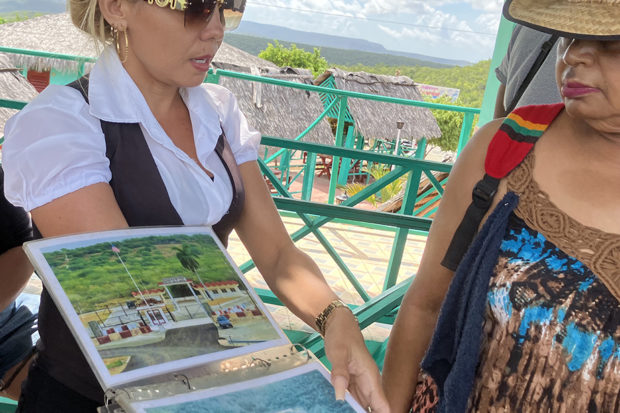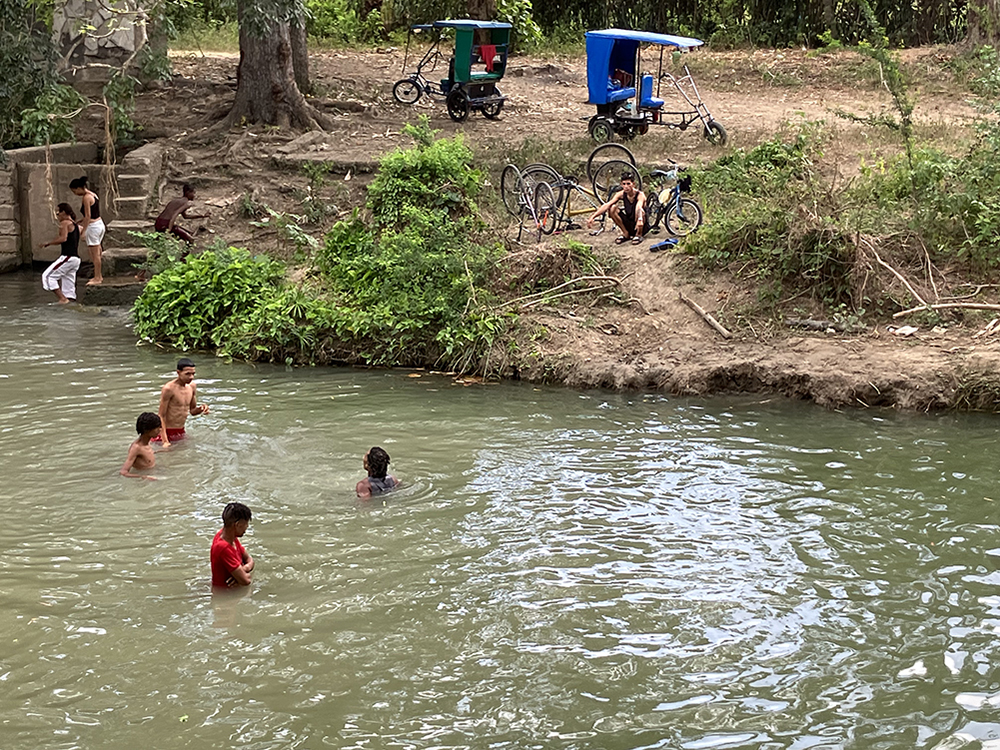
The name Guantanamo brings up only one image for most people in the United States—the U.S. “military prison/detention center” torture facility within the U.S. Naval Base at Guantanamo Bay. It is still there, of course.
On June 26, the International Day in Support of Victims of Torture, the UN “special rapporteur on the promotion and protection of human rights and fundamental freedoms while countering terrorism,” Irish attorney and law professor Fionnuala Ní Aoláin, released her report of the U.S. prison located within the U.S. Naval Base at Guantanamo Bay.
The report said, “I observed that after two decades of custody, the suffering of those detained is profound, and it’s ongoing. Every single detainee I met with lives with the unrelenting harms that follow from systematic practices of rendition, torture and arbitrary detention” and that the 30 men still held there are subject “to ongoing cruel, inhuman and degrading treatment under international law.”
When the Bush administration set up this torture facility, the claim was that the area was sovereign territory of Cuba and hence outside U.S. constitutional jurisdiction and protections and outside the purview of U.S. courts. That’s an interesting claim.
The U.S. government states that it has a lease without a termination date on this property, and that Cuba cannot choose to end this lease. The legality of both positions is dubious.
The original lease was for a naval base and coaling station, not a prison, and expressly excludes the use of the land for any other purpose. So the establishment of a prison was and is a violation of the lease. Beyond that, legal agreements must be voluntarily entered into by both parties. That isn’t the case with this lease.
In 1898, the United States intervened at the point when Cuban forces had, for all practical purposes, defeated Spain and won the independence of the island. The Cuban liberation forces were not permitted by the United States to send representatives to the Paris treaty talks or to even participate in the Spanish surrender ceremonies.
The United States imposed a military dictatorship in Cuba, which was withdrawn only after Cuba accepted—not freely or voluntarily but under duress, effectively at gunpoint—the Platt Amendment in 1903, establishing a permanent right for the United States to intervene as desired and requiring Cuba to lease land for “coaling or naval stations.”
In 1934, this amendment was repealed and replaced with a new treaty that allowed the naval base to be retained by the United States indefinitely. The signatory for Cuba was Fulgencio Batista in his first period of power after his first military coup.

Under international law, these agreements are illegal, imposed by the threat of force and benefitting one side only. The U.S. payment for the lease is just above $4,000 annually.
Guantanamo is sovereign territory of Cuba, and the nation of Cuba has been demanding its return for more than 60 years. (They don’t cash those $4,000/year checks, either.)
Guantanamo is much more than a naval base containing a torture prison. It’s a province of Cuba, with a capital city of the same name. It’s a port and a bay that Cubans cannot use, fishing areas and shipping channels that are closed, as well as the occupied land itself.
It’s a U.S.-Cuba frontier, a border within the island. It’s an opportunity for the United States to carry out provocations such as recently sending a nuclear submarine to an area that is part of the Latin American and Caribbean nuclear weapon–free zone, according to the 1967 Treaty of Tlatelolco, renewed in 2014 with the 33 nations of the region signing the Declaration of Latin America and the Caribbean as a Zone of Peace.
The submarine’s presence, like the prison’s presence, like the torture carried out there and the detentions without charge or trial are all violations of international law.
The United States has occupied 117 square kilometers of Cuba for 121 years, against the will of the Cuban people and as a symbol of U.S. colonial control of Cuba that began in 1898. The area has no strategic importance for the United States. It’s there to be a provocation and an indication of U.S. power. The United States is there to emphasize that we are able to do whatever we want, legal or not.
We on the Pastors for Peace Caravan to Cuba visited Guantanamo—the province, not the naval base—in the same month as the U.S. nuclear submarine. It was brief, with a cultural event, a chance to see the bay from an overlook and the unusual opportunity to visit the Brigada de la Frontera. Many of the Cubans doing their national service in this brigade are students of international affairs.
Cuba doesn’t want any hotheads on the front lines. There are no Cuban workers in Guantanamo; the United States contracts civilian workers from Jamaica and the Philippines at rates below the U.S. minimum wage.
And the overt low-level U.S. provocations such as shooting at Cubans from the base no longer occur. The presence of the prison and base are sufficient provocations in themselves. It’s as if an armed intruder broke into your house, then demanded at gunpoint that you sign a “lease” giving them your spare bedroom for $4/month. Now you are hearing screams, and blood is running out from under the door.
We weren’t there long enough to see or learn much, but one thing is absolutely clear: Guantanamo is part of Cuba. The United States has no right to be there.

